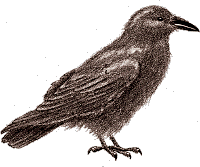In 1250 AD the weather was once again much too dry, and a contagious disease spread among the animals. Almost all the cattle in the Wolden[1] that had survived last year or that was bought to replace what had perished, died. And in the heat of the summer the corpses rotted and there was a terrible stench, that also made people ill. Like Galenus says, rotten air is even worse than rotten food.
In the Wolden a new kind of plague appeared among the people. A poisonous blister appeared between the skin and the flesh, in the beginning the size of an acorn. People thought it was some kind of sting from an insect, but those who studied it more thoroughly said that a few days before it appeared they had felt that the balance in their bodies had been disturbed. It seemed to travel all through the body looking for a way out, and very often it broke out in the neck, above the shoulders. If the blister was cut out on the first day, and the wound burnt with a hot iron, the person could recover. If not, one died in seven days. Without surgical treatment almost nobody survived.
[..about Galenus and Vergil on illness and rotten air ..]
We include this in case of a - hopefully not - similar pestilence in the future, that one may, especially in the summer, bury the corpses deep into the ground. [..]
In the same year Pope Innocentius returned from Lyon to Rome.
In the same year, while the Frisians were hit so hard, the Groningers seemed to mock them. Without mercy they raised the prices of the grain they imported by ship from other countries. But behold, they suffered a different peril. Because. Koenraad of Groningen, the knights Adolf and Rudolf of Peize and their following, as well as the majority of the citizens of Groningen, have done the Frisians injustice, and they disturbed the peace of the horse market - they confiscated the best horses of their choice for themselves. They even imprisoned nobles from Fivelgo, and caused a lot of damage and discomfort to people from Hunsingo. So then the people of Fivelgo and Hunsingo finally made peace, after twenty-two years of conflict over the island of the people of Uithuizen. It appeared as if God had arranged for the destruction of Groningen. The peace was brokered by Sicco, dean of Farnsum, an eloquent man skilled in worldly affairs, together with other wise men, both monks and laymen. Thus the fight that had kept on for so long and had cost so much blood was ended. It was ruled that one quarter of the island would go the those of Eenrum, who had tried to acquire half of it originally, and the other three quarters would go to those of Uithuizen.
For all those fallen in the war, the headmen of both parties paid weregild. The party of Fivelgo had killed about hundred men, the other party short by eighteen the same. The ransoms for the prisoners were returned, by the headmen, not by those who had received them. For the clearly by them committed plunder and arson those of Eenrum gave to those of Fivelgo and their headmen, namely those of Uithuizen, 24,000 mark in Fivelgo coinage.
Those of Uithuizen gave those of Hunsingo 900 mark. The plundering of cloths and weapons, and all inflicted wounds, except those of the six limbs, was forgiven, for God and the good of peace.
When the peace between them was made, but everything was not yet settled definitely, they flocked together as one people to attack Groningen. After they had conducted brave attacks, they destroyed the castle Gronenburg[6]. That castle was built specifically against the inhabitants of Drenterwolde, on the banks of the Hunze, and that same Hunze surrounded it almost completely; one considered the castle as a threat to many, especially the residents nearby. Next they laid siege to Groningen, but because of the wet autumn and the unstable air they didn't manage to take the city that year.
[1] Wolden: (lit. Woods) the (partly developed) peat areas between the coastal clay lands and the sandy high ground of the inland.
[2] Hunsingo: Frisian shire around the river Hunze, NW of Groningen
[3] Fivelgo: Frisian shire around the river Fivel, NE of Groningen
[4] Uithuizen: coastal village in Fivelgo
[5] Eenrum: coastal village in Hunsingo
[6] Castle of the Van Groningen family.

